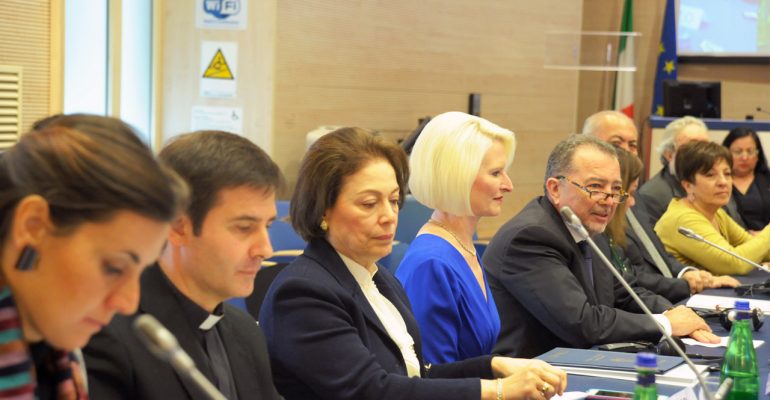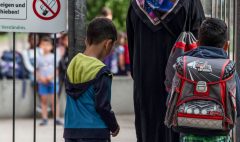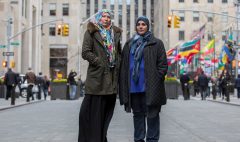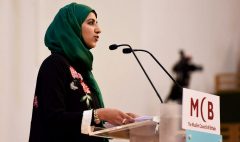The International Seminar: Women, Faith and Culture
December 14, 2018 2023-06-14 12:00The International Seminar: Women, Faith and Culture

The International Seminar: Women, Faith and Culture
The seminar, organized by the International Foundation of Interreligious and Intercultural Education (IFIIE) together with the International Affairs Institute (IAI), was held at the premises of the Italian Ministry of International Affairs and International Cooperation (MAECI). With scholars and theologians coming from the United States, Europe, and Asia, this event was set to discuss the role and status of women in the three monotheistic religions and beyond from a sociological, theological, and philosophical angle.
This interdisciplinary-oriented seminar was structured around five panel sessions. The first two sessions were set to discuss the status of women in Islamic exegesis and Catholic thought. The take away lesson out of these sessions was that contemporary challenges for gender equality stem from the misinterpretation of core Islamic principles and thus there is the need to refer back to the core foundations of religious principles. In the third session, which focused on the position of the woman in contemporary Jewish thought, the strong biblical figure of Esther was recalled in order to redirect the focus more on female characters in religious thought and leadership. Female religious leadership in various Jewish schools of thought has increased throughout the last century…
Finally, the seminar was wrapped with some policy recommendations to improve the status of women within the three monotheistic religions. The often-made mistake of confusing religion and culture needs to be overcome. In so doing, religious and cultural discourses must be contextualized, since socio-political contexts are crucial elements in producing patriarchal and authoritarian systems, which put constraints on the situation of women and on their rights. Further, there the need to foster religious education on a national and international scale and in an intercultural manner, so that women (and men) have access to the skills needed to read the holy scripts in a history-critical approach. As it was mentioned several times before, women and the youth must be the leading actors in this process.








